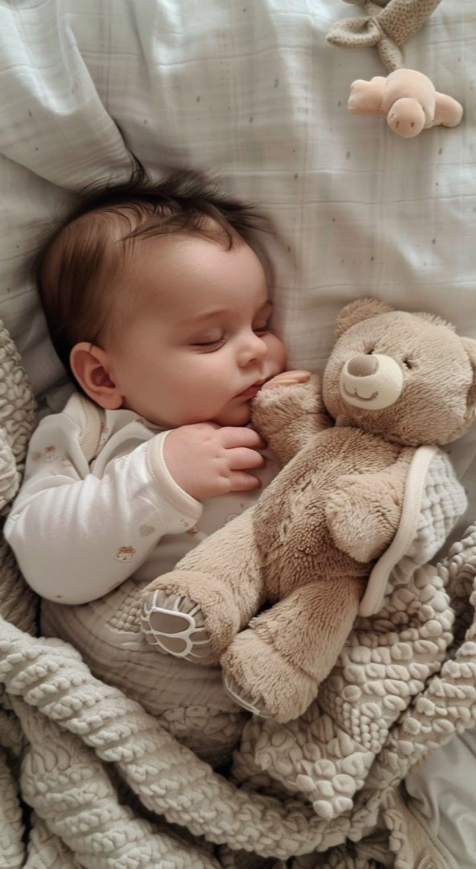Updated October 2021
I am sure I can speak for almost every parent when I say that we have all asked the question “When do toddlers stop napping?”
You are probably asking this question because you have a toddler that has decided they are done with naps.
If you clicked on this article because you are frustrated that your little one suddenly thinks they are too big for naps, I hope I can be of some assistance as to why this is going on and if it really does mean the end of nap time.
From a developmental perspective (language development, cognitive development, physical development), sleep is extremely important during your child’s early years and actually remains an important part of their development into the teenage years.
Typically, most children should be napping until they are about 3 years old as they most likely do not get the required hours of sleep throughout the night alone.
How Many Hours Of Sleep Do Toddlers Actually Need?
When I was practicing as a Speech–Language Pathologist, I worked with many toddlers (1–2 year olds) as well as preschoolers (3–5 year olds).
Often, some of these children exhibited behaviors during our sessions that were not conducive to learning, for example, running away, throwing things, crying, not being able to learn what was taught after many months of repetition, etc.
One of the first question I would ask parents is “how well does your child sleep?”.
If the parent told me that their child went to bed at 9pm, got up at 7am and didn’t nap, I would know that a big reason for these behaviors was lack of sleep.
Below are the typical hours of sleep required for toddlers and preschoolers.
You can also go to the “children and sleep” article posted on sleepfoundation.org for more information regarding children and sleeping.
Toddlers (1–2 year olds)
Toddlers need about 11–14 hours of sleep (within 24 hours).
Most toddlers drop down to one nap at around 12–18 months of age.
Depending on how much sleep they get at night, naps typically range from 1 to 3 hours.
Preschoolers (3–5 year olds)
Preschoolers require about 11–13 hours of sleep in 24 hours.
As you can see, this is pretty much the same requirement as it is for toddlers (give or take an hour).
Most children will have given up naps entirely by the age of 5 (you are one of the lucky ones if your child naps until the age of 5).
If your child isn’t napping anymore they will need to get the required hours of sleep throughout the night.
When Do Toddlers Stop Napping?
Unfortunately this isn’t a very easy question to answer.
As I mentioned above, the average age seems to be 3.
My daughter napped until she was almost 5 (this is not the norm for most kids), but my son stopped napping just before he turned 3.
He still had occasional naps here and there after the age of 3, but not on a consistent basis.
When I knew he was really tired and wouldn’t nap in his room, we would go for a drive.
He slept in the car until he was almost 9!
Why Do Some Children Stop Napping Earlier Than Others?
There are several possible reasons for this.
My daughter went through a phase right when she turned 2 when she decided she didn’t want to nap anymore.
I was not ready for her to be done with napping (yes, napping sometimes is all about the parent…).
We had the nap time routine down pat, so I just stuck with it.
Another reason children struggle to sleep during the day can be because they are not getting enough sleep at night.
I know it sounds strange but children who are over tired tend to have a harder time sleeping as their body is overcompensating and trying to keep them awake.
So, if your toddler is still waking through the night, this might be what is causing the issue with not wanting to nap during the day.
The Trick To Getting Your Toddler Napping Again
Everyday around 1pm was nap time at our house.
I told my daughter that even if she didn’t want to nap she still had to have “quiet play time” in her room (for about 1–2 hours).
We did this everyday and then about 2 weeks later, she started napping again (on the floor, she refused to lie in her bed).
This may not be the case for your child, but keep up with the “quite time” routine.
Down time is good for little ones even if they aren’t sleeping.
We can’t force children to sleep but we can give them every opportunity to easily fall asleep when they are tired.
Toddlers and preschoolers are developing so quickly, that their developmental “growth spurts” often get in the way of sleeping.
This is also why children who normally sleep through the night may start waking at night.
If they are learning to crawl, walk, talk, getting new teeth, basically any new skill, their sleep is often the first thing to be interrupted.
Another reason that toddlers may no longer want to nap is the transition from the crib to a big kid bed.
The big kid bed brings a lot of freedom along with it.
Always remember, you are the parent and you need to set rules and boundaries for your child.
Be prepared for protesting and disruptions in routines along the way, but just stick with it and help them get back on track.
So, if your child is under the age of 3 and appears to no longer want to nap, don’t assume they are done with napping all together.
Continue with the routine but tell them that it is “quite time” and that they are allowed to quietly play in their room.
Children need consistency and you can provide this to them.
Quite Time Ideas & Activities
These are activities that can be done safely by your child without constant adult supervision.
I always made sure my children had lots of books, stuffed animals and other safe but simple toys in their rooms.
My children luckily never colored on walls or furniture (even when unsupervised) so I also made sure that they had some paper and crayons in their rooms as well.
If you are worried about your child coloring on things other than paper, try an aqua doodle mat!
Remember, this is quiet time and the intent behind it is that your child will hopefully fall asleep on their own.
If there are too many stimulating toys (hint, these are the toys that require batteries) then it won’t really be “quiet time”.
Why Napping Is Important For A Toddler
If a child is not getting enough sleep it will impact other areas of their lives:
- daytime sleepiness and irritability
- behavior problems
- inability to focus and learn new skills
- mood swings
- cognitive issues (this is more the case with children over the age of 6 who aren’t getting enough sleep)
Bottom Line
Sleep is extremely important for a child’s mental and physical development.
In order to encourage sleep, stick to routines and schedules and remove any distractions.
Many parents have started putting a TV in their child’s room as they think that this helps their child settle and fall asleep easier.
But, the opposite is true.
There are many studies showing that watching TV in bed, as a means to fall asleep, can lead to a more restless sleep as well as issues with anxiety.
Instead, allow your child to listen to some music and look at a book with a dim light on if they aren’t ready to fall asleep when you leave the room.
Also, make sure your child is going to bed at a reasonable time in the evening (8pm or earlier for children under the age of 6 is the recommendation provided by most health care professionals).
Children over compensate when they are tired, so they may become hyper.
This leads the parent to believe that their child is in fact not tired and thus, they allow them to stay up longer.
And then the vicious negative sleep cycle begins.
I hope that this article has helped answer “when do toddlers stop napping?”
Are you struggling with getting your child to get the required hours of sleep or do you have a great sleeper?




